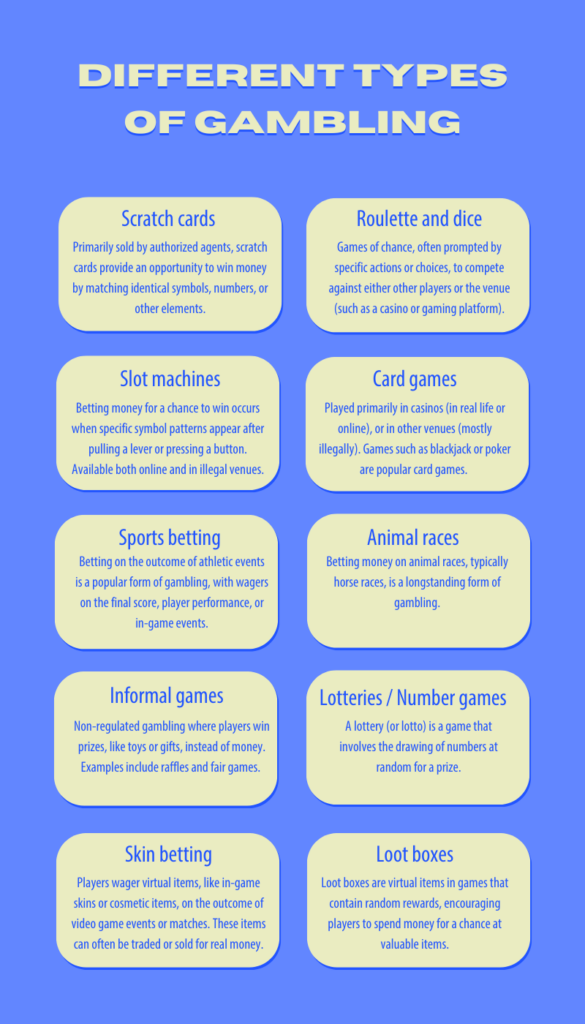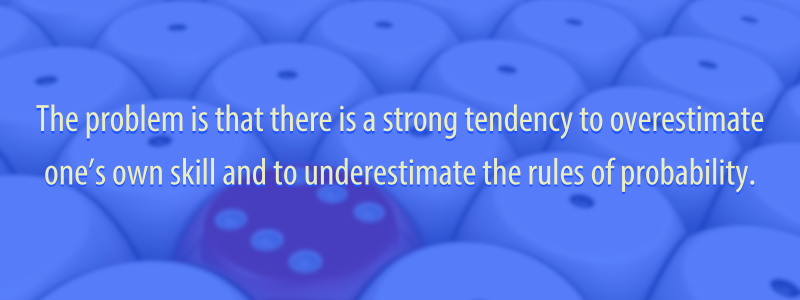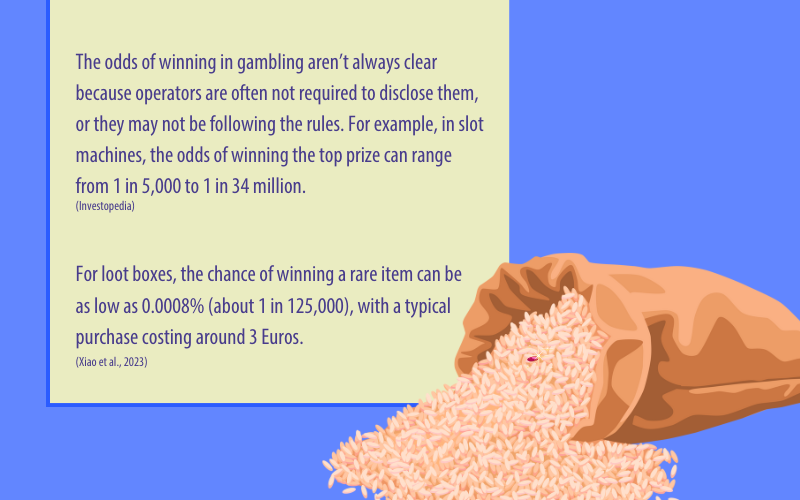But what is gambling exactly?
Definition:
Gambling is when people risk money or something valuable to try to win more, but they don’t know for sure if they’ll win or lose (Winter et al., 2012). It is a risky activity that can harm the person who does it, as well as their family and friends.
Gambling games:

There are many different forms of gambling, ranging from physical to digital!
Scratch Cards
Roulette / Dice
Slot machines
Card games
Sport betting
Animal races
Animal fights
Informal games
Lotteries / Number games
Skin betting
Loot boxes
Which of these have you seen before?
Differentiation of luck and skill games:
Is getting good at gambling possible? Probably not.
Gambling by default is being based on luck and/or chance. Of course, there are games in which your skill and understanding of the game will affect your chance of winning more significantly. People often mention Poker as a skill-game or chess as such. Also, in sports betting, knowing something about it will give you a higher chance of being correct with your assumptions.
But every game’s outcome is left to chance, and no skill or knowledge in the world will change that fact.

The problem is that there is a strong tendency to overestimate one’s own skill and to underestimate the rules of probability.
To summarize, gambling by default is being based on luck/chance.
Probability of Winning

The odds of winning in gambling aren’t always clear because operators are often not required to disclose them, or they may not be following the rules. For example, in slot machines, the odds of winning the top prize can range from 1 in 5,000 to 1 in 34 million (Investopedia). For loot boxes, the chance of winning a rare item can be as low as 0.0008% (about 1 in 125,000), with a typical purchase costing around 3 Euros (Xiao et al., 2023).
How Does the Gambling Industry Make a Profit?
Ever heard the saying “the house always wins”? This reflects the way gambling is structured—casinos and other gambling operators are designed to make a profit in the long run, no matter how individual bets play out. The percentage advantage the casino has is called the ”house edge,” and it varies depending on the game.
Example of the House Edge:
Let’s take a roulette game, where a player bets on a single number out of 38. The odds of winning are 1 in 38, or roughly 2.63%. If the player plays 38 rounds, they’ll, on average, win 1 time and lose 37 times. But the casino allows the probability of winning only in a certain number of rounds, for example in 35 of 38 rounds of playing. The remaining rounds are set to be losses. The casino’s secured profit (house edge) can be calculated like this:
Expected Value= −1 × 37⁄38 + 35 × 1⁄38 = −0.0526
This means the house edge is 5.26%. In other words, for every $100 wagered, the casino ensures to keep at least $5.26 in the long run.
How Does This Affect Players?
In essence, the more you play, the more likely it is that the casino will make a profit, while the player will experience losses. The odds are slightly tilted in favor of the operator, which ensures they make money over time, regardless of any individual’s wins.